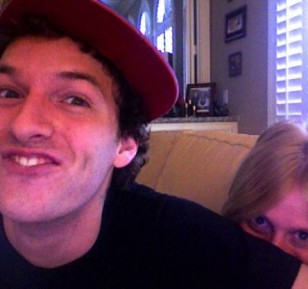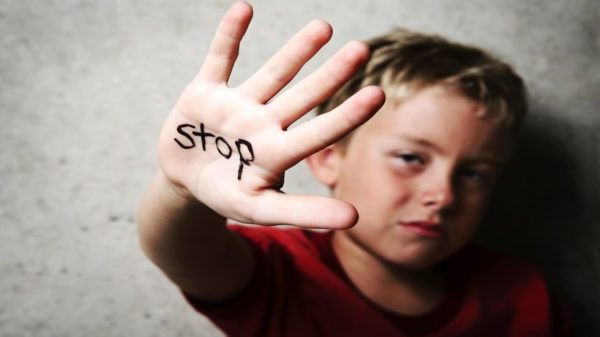Congratulations to blog member, Daniel L., for winning the Ask Erik submission! His is a story we can all learn a lot from.
Also, it seems like the choices for the next book reveal a neck and neck edge between two: In first place is the book about being human and all of the aspects from a spirit’s perspective. Topics would include things like how to forgive yourself and others, the root of stress and how to deal with it, overcoming victimhood, learning to let go, self-sabotaging behavior, loneliness, self-esteem problems, the lack of abundance and how to achieve it, and much much more. In second place, a book much like the first one which would include more information about the afterlife. How about one more vote to narrow this down. This will really help my publisher and me so please vote!
Okay, Daniel, here’s your birthday present. Happy 19th!
Since I was a little boy – I’d say 6-7 years old, I have always had a major fascination for spirituality and deep philosophical questions: like where do we come from, why are we here? Ever since I started to ponder these subjects, and ask questions, I’ve always struggled to find my answers. Even now that I have a better understanding of the way the world works on a scientific level, and my spirituality has grown, I still struggle with the most important questions to me, for example, “Where has ___ gone? Why can’t I hear them or see them like others?”
But one of my biggest challenges and hardest questions to find answers for came a few years ago when my Mother was raped in our home, and I was assaulted. The man stole the keys from my hand, ran inside my apartment and locked the door behind me. My Mother has never had an “easy life” by any means, especially during her childhood when she had the same thing happen to her by her Father. If I could ask Erik one question, it would have to be why this happened to her? What role does her father and this man play in helping her grow spiritually? Was this a contract?
Of course I have many questions, as anyone does when on a spiritual path, but this is probably one of my most important since my Mom means the world to me, and I hate to see her suffer. I hope Erik can give me a little insight on why this happened, where it stems from, and how I can help her – and how she can help herself move past it. I hope if you choose to ask Erik this, that it also helps others who are dealing with similar struggles! Thank you Elisa and Erik!
I read the paragraph to Robert and then say:
Me: Oh, I forgot! Hi Erik!
Erik: Damn, I was wondering when you were going to get to that! You just use me; use me.
Robert and I laugh.
Robert: You’re funny, Erik. He knows I need to laugh, because I’ve been so serious the last couple of days.
Me: Why?
Robert: I don’t know! It’s like the world has ended or something! It’s just the strangest thing.
Me: Well, that’s no good! That’s something to be serious about.
Robert: Yeah. Yeah. It must have been just the emotions that were coming up that we’re going to have to feel when this question was going to be asked.
Me: Oh, yeah. Maybe.
Robert: He’s talking about the mom. He sometimes talks so fast that I can’t keep up. Erik, let’s slow down a little bit.
Erik: It’s about time you asked! If you don’t ask, you don’t fucking receive!
Me: That’s true!
Robert: He’s talking about the mom being raped, victimized.
Erik: That’s the operative word. Victim. It’s about being a victim. First of all, I want to say that, on a compassionate note, I feel for her, and I feel for all the other people who have had to be around that kind of energy, because once someone is treated in that way, everybody connected to them feels it, too, in their own way. It’s a heaviness, and it fucking sucks.
Robert: He’s giving me chills all over my body. (Teasing Erik) Anyway, I didn’t know you cared so much, Erik.
Robert and I laugh.
I love the banter that’s similar to that between Jamie and Erik.
Robert: When I said, ‘I didn’t know you cared’ he made this face like he pursed his lips, but there’s a little bit of pride there at the same time.
Me: I can see that.
Robert: If there’s an adjective or good description for that I don’t know what it is.
Erik: So can we get back to work now?
Robert: All right! All right! Gosh! This is the other thing that’s going to come up. I’m going to complain about him sometimes, but just in play, because, god, he gets on my nerves! He gets on my nerves!
Me: Jamie [complains] too!
Poor Erik. Everyone’s picking on him. I bet he can handle it. Take it like a man, Erik!
Erik: These are all lessons in what it’s like to be the victim and, on the flip side, be the victimizer of yourself. Whenever we have painful experiences like this, either they happen to us or we witness them, which is the same thing as if it were happening to us, we start to victimize ourselves or other people around us will do that to us, too. You start to blame yourself, “I should have done this or I should have done that or I should have been stronger or I should have said, “no”.” Whatever. You just have to let what happens to you be what it is and feel what you need to feel. You need to talk about it, and in a way that empowers you, not disempowers you, because so many people, when they go through these experiences, they feel beat down.
Robert: He shows me this image of a dog that’s been abused. He sits in the corner and cowers. That’s so disempowering. It’s so hard to see that.
Me: Aw. That chokes me up a little bit.
Erik: That’s what happens when people are treated this way.
Me: In the mom’s case, is she doing that?
Erik: Yes, she is, but here’s the thing that’s so great about her. It’s very typical of one of the good things that can come out of a lesson like this. They first try to be strong for everyone else, but they forget to be strong for themselves.
Me: Ah!
Erik: That’s what’s going on here. What Daniel needs to do is not try to be the savior, and there are other people in this situation that might be trying to play that part like maybe they’re supposed to be the savior for this person. That’s the kind of responsibility that’s not fair to ask for. He’s still a kid, himself. He needs to be that, because he’s still building his foundation, so if he starts taking on to much responsibility, that foundation won’t be stable. If that happens, life will be so much harder for him emotionally and physically. He may get into situations where people fucking take advantage of him, and he starts getting victimized. He might perpetuate what he has witnessed.
Me: Because of –
Erik: Because of what happened to his mother.
Robert: I never thought about that before!
Me: Really!
Erik: So, he has to just sit back so he doesn’t feel powerless, because it’s not an excuse to just say, “Well, okay. It’s her problem, not mine.” That’s not what I’m saying. That’s selfishness in the most egocentric way, or it can be because for some people it might be, “Well, I’m just trying to protect myself. I’m trying to keep myself from sinking on this ship.”
Me: Mm hm.
Erik: In those situations, be compassionate. Show compassion. Show empathy.
Me: What would that dialogue look like with his mom?
Erik: In this case, it would be so easy. He could just go up and hug her and say, “You know how much I love you?” Just simple things. Sometimes, victims suffer for lack of love or at least the perception of a lack of love.
Me: So, you don’t have to bring that compassion into play in the context of what she’s been through like, “Mom, I know you had a hard time”—
Erik: No. That is just going to remind her of what happened and keeps her in a place of feeling disempowered.
Me: Ah! Yeah. But what should she do?
Erik: For her, well, let me finish my thought first about what Daniel and the family could do.
Me: Okay.
Erik: Express compassion. Just give her a hug and let her know she’s supported, because as far as she is concerned, she needs to stop playing that tape over and over in her head. As much as she doesn’t admit that she does it, she does. She needs to allow herself to trust a man again, male energy. Sometimes people will pussy foot around the subject—
Robert giggles.
Erik: —and go, “Well, I trust men. I’m in a relationship. I have male friends”, but there’s still a part of them that still doesn’t trust them. They keep them at arm’s length. It’s like, “That’s never going to happen to me again.”
Me: Wait, so she might think, “That’s never going to happen to me again” and that’s why she might say, “Well I get along with men” but, deep inside, is she fearful that it might happen again?
Erik: Can you blame her for having that fear? It’s happened twice.
Me: No, I can’t blame her.
Erik: So, of course that’s going to cross someone’s head. You’re going to be hypervigilant.
Me (teasing): Big word for a little boy! I’m so proud of you!
Robert: Yeah, where did that come from?
Me (teasingly): Have you been going through your vocabulary flash cards?
Robert (laughing): He does this thing where he kind of arches his back like he was farting, and then he just pulls out this pile of steaming poo.
Me: Oh, Erik. I can just see him. He probably sticks his front teeth out like kind of a beaver look.
Robert: Right! And out comes a little piece of paper. It’s like the poo is a little fortune cookie and there’s a piece of paper, and he pulls it out. Then he drops the poo and reads what’s on the paper. “Hypervigilant.”
Robert and I belly laugh.
Robert (still laughing): That’s funny. Kind of stupid, though. So where were we?
Me: I derailed you! Well, is there a contract—
Robert: Oh, I’m sorry; I don’t mean to interrupt. He was going back to where this took place. That’s important.
Erik: In both instances, when she was younger and as an adult this happened in her house or some place where she was supposed to be safe. Whenever those kinds of experiences happen in that kind of atmosphere, it’s an invasion of boundaries. Sometimes, we come here to play the part of the victim to learn how to set boundaries. Both the victim and victimizer have no boundaries. If you’re the victim, you’ve allowed someone to cross your boundaries. If you’re a victimizer, you cross other people’s boundaries. In either case, there’s no regard for respect for yourself or the other person.
Me: So, you don’t have respect for yourself, because you didn’t enforce your boundaries to protect yourself, and the victimizer doesn’t have respect for your boundaries?
Erik: Yeah. Now, in this situation, that’s going to come across as not very compassionate cuz it’s like blaming the victim. That’s not what I’m trying to do here, and that’s very important for me to bring up. It’s more of an unconscious thing. You know when a person feels a sense of unworthiness? You read their body and can tell, because they hold their shoulders down and their head is down. They slump; they slouch. They just don’t look confident. That is an unconscious signal to other people that you can be taken advantage of.
Me: Yeah.
Erik: But you don’t care about yourself, so why should anyone else? I’m just giving this as an example. I’m not saying she brought this on herself. That is not what happened.
Me: Yes!
Erik: I’m just giving examples of someone who doesn’t have respect for themselves and how it comes across in their body language. Now we can move on.
Me: Thank you, King Erik.
Robert: Yeah, he does this thing where he puts his left arm on his stomach and his right hand behind the small of his back, and then he bows.
How corny is that?
Me (in the sappiest voice I can muster): I love you, Erik.
Erik: I love you too, Mom.
I bet he’s rolling his eyes.
Me: Was there a contract with her with the father and the other guy?
Erik: Oh, yeah. You know, in order to have a lesson, you have to have somebody to play the other part.
Me: In her case, what was the lesson, and what was the lesson for both guys?
Erik: The first thing I would say about it, because they’re both males, and this is where she’s a trailblazer, because a lot of women don’t think about looking at it this way, is that sometimes male energy is needed, because with some people, society says they are weaker than. Historically, that’s what’s been said to females. The male needs to be the one who protects you, but she’s living a life where that hasn’t been the case. The male has abused her. So, what’s she’s been given the opportunity to see in herself is that she doesn’t need a male to make her feel validated, to protect her. She can do that herself.
Me: So, these instances have helped her do that or –
Erik: This is the opportunity that’s being presented. This is allowing her to see that, but you can’t just distrust all males either.
Me: No!
Erik: Because then you would be creating new kinds of lessons for yourself that you’re going to have to work through.
Me: Was how she reacted some sort of lesson for the victimizers? What part of the contract do they play? What’s their lesson? What did they learn, or what should they have learned if they didn’t?
Erik: Respect for other people’s fucking boundaries, to be more conscious in your actions. And I know this is going to sound really fucked up for me to say, but when you play the part of victimizer, you’re doing that because, um, in order to do that, you have to have an absence of empathy. When they go and do their life review, and I can tell you one of these guys didn’t get it—
Robert: He’s talking about the things one of these guys has been saying.
Me: Mm hm.
Robert: It’s basically about blaming her.
Me (in disgust): Oh!
Erik: When they cross over, they’re going to have to go through some shit, and they’re going to learn it then.
Robert: One person feels like they’ve already done that process, though. Maybe the dad? Somebody feels like they’ve gone through it and had this whole guilt trip going on.
Me: Good. Good. Anything else you want to share about Daniel’s story, Erik?
Robert: He mentioned something about Daniel, in particular. He just kept saying, “Let’s talk about Daniel.”
Me: What do you think about Daniel, Erik?
Erik: Daniel’s a great guy. I will say that one of the things he worries about that he doesn’t need to which comes from things he’s witnessed and that were taught to him because of the environment he’s lived in is that maybe he needs to do a little more. He worries that he needs to take the extra effort, and if he doesn’t go the extra mile, then that’s not going to be enough, and that’s going to be a reflection of his own worthiness and sense of self-esteem.
Me: If he doesn’t go the extra mile in what way? For the mother?
Erik: For anyone. He’s setting himself up to be a people-pleaser and that affects all sorts of relationships.
Me: Right.
Erik: When people do this, they set themselves up to be the victim in some cases. Eventually, they can become soured to life and grow bitter.
Me: Yeah.
Erik: But that’s not the way Daniel is now. He’s still young. I’m talking long-term. He just needs to be aware of that, and when it comes to relationships, he needs to—
Robert: I don’t know. For some reason it popped into my head that there’s someone he’s already interested in. When Erik’s talking about relationships, he says that Daniel is going to find the right person who is meant for him. That’s not going to be an issue. He’s not going to be alone.
Me: Aww.
Erik: Nuff said.
Robert (laughing): He just abruptly stopped!
Me: Coming to a screeching halt, huh?
Erik: You know that’s the way I am, Mom! I talk, talk, talk about something, and then I’ll stop.
Me: I know! I know! I know how you can talk and talk and drone on and on, but everything you say is amazing, Erik!
Erik (chuckling): I know.
Me: And your modesty never fails to impress me!
Robert (laughing): He takes his first finger and thumb and pulls his shirt out and says, “I know.”
Me: Like, “I’m all that.”
Robert: Right.




